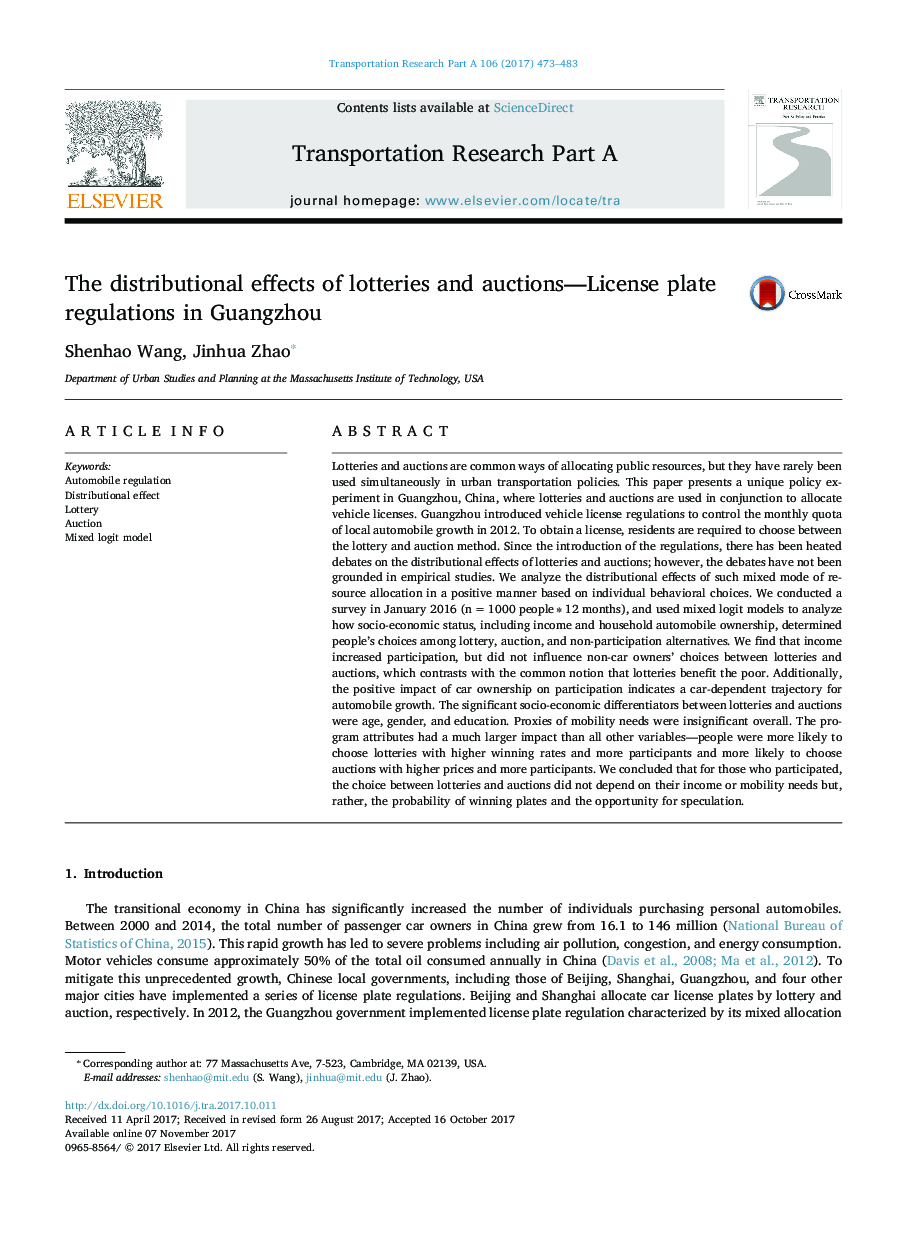| کد مقاله | کد نشریه | سال انتشار | مقاله انگلیسی | نسخه تمام متن |
|---|---|---|---|---|
| 6780685 | 1432194 | 2017 | 11 صفحه PDF | دانلود رایگان |
عنوان انگلیسی مقاله ISI
The distributional effects of lotteries and auctions-License plate regulations in Guangzhou
ترجمه فارسی عنوان
اثرات توزیع قرعه کشی و مزایده-مقررات شماره پلاک در گوانگژو
دانلود مقاله + سفارش ترجمه
دانلود مقاله ISI انگلیسی
رایگان برای ایرانیان
کلمات کلیدی
تنظیمات خودرو، اثر توزیع، بخت آزمایی، حراج مدل منطق مخلوط،
موضوعات مرتبط
مهندسی و علوم پایه
سایر رشته های مهندسی
مهندسی عمران و سازه
چکیده انگلیسی
Lotteries and auctions are common ways of allocating public resources, but they have rarely been used simultaneously in urban transportation policies. This paper presents a unique policy experiment in Guangzhou, China, where lotteries and auctions are used in conjunction to allocate vehicle licenses. Guangzhou introduced vehicle license regulations to control the monthly quota of local automobile growth in 2012. To obtain a license, residents are required to choose between the lottery and auction method. Since the introduction of the regulations, there has been heated debates on the distributional effects of lotteries and auctions; however, the debates have not been grounded in empirical studies. We analyze the distributional effects of such mixed mode of resource allocation in a positive manner based on individual behavioral choices. We conducted a survey in January 2016 (nâ¯=â¯1000 peopleâ¯ââ¯12 months), and used mixed logit models to analyze how socio-economic status, including income and household automobile ownership, determined people's choices among lottery, auction, and non-participation alternatives. We find that income increased participation, but did not influence non-car owners' choices between lotteries and auctions, which contrasts with the common notion that lotteries benefit the poor. Additionally, the positive impact of car ownership on participation indicates a car-dependent trajectory for automobile growth. The significant socio-economic differentiators between lotteries and auctions were age, gender, and education. Proxies of mobility needs were insignificant overall. The program attributes had a much larger impact than all other variables-people were more likely to choose lotteries with higher winning rates and more participants and more likely to choose auctions with higher prices and more participants. We concluded that for those who participated, the choice between lotteries and auctions did not depend on their income or mobility needs but, rather, the probability of winning plates and the opportunity for speculation.
ناشر
Database: Elsevier - ScienceDirect (ساینس دایرکت)
Journal: Transportation Research Part A: Policy and Practice - Volume 106, December 2017, Pages 473-483
Journal: Transportation Research Part A: Policy and Practice - Volume 106, December 2017, Pages 473-483
نویسندگان
Shenhao Wang, Jinhua Zhao,
